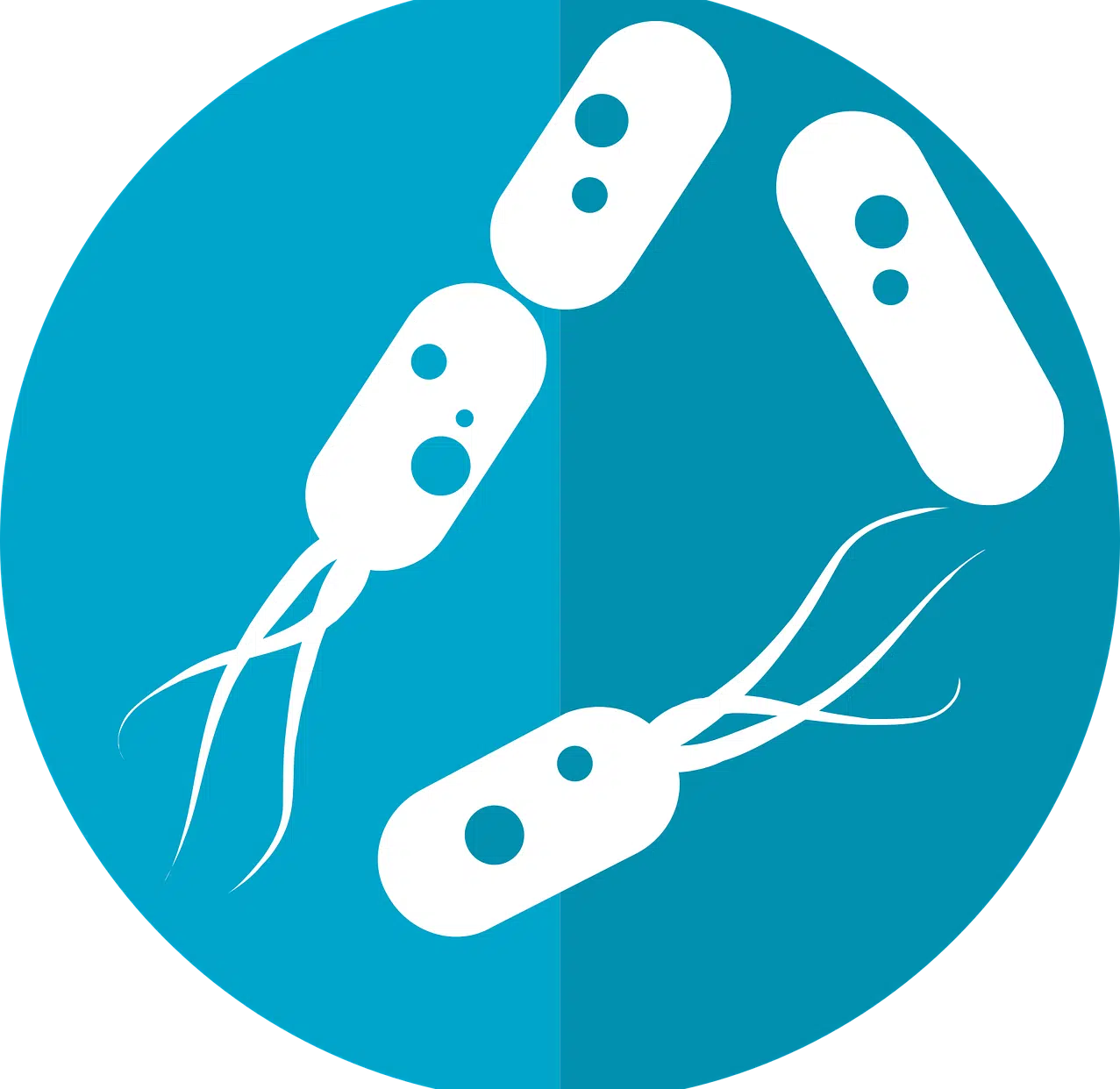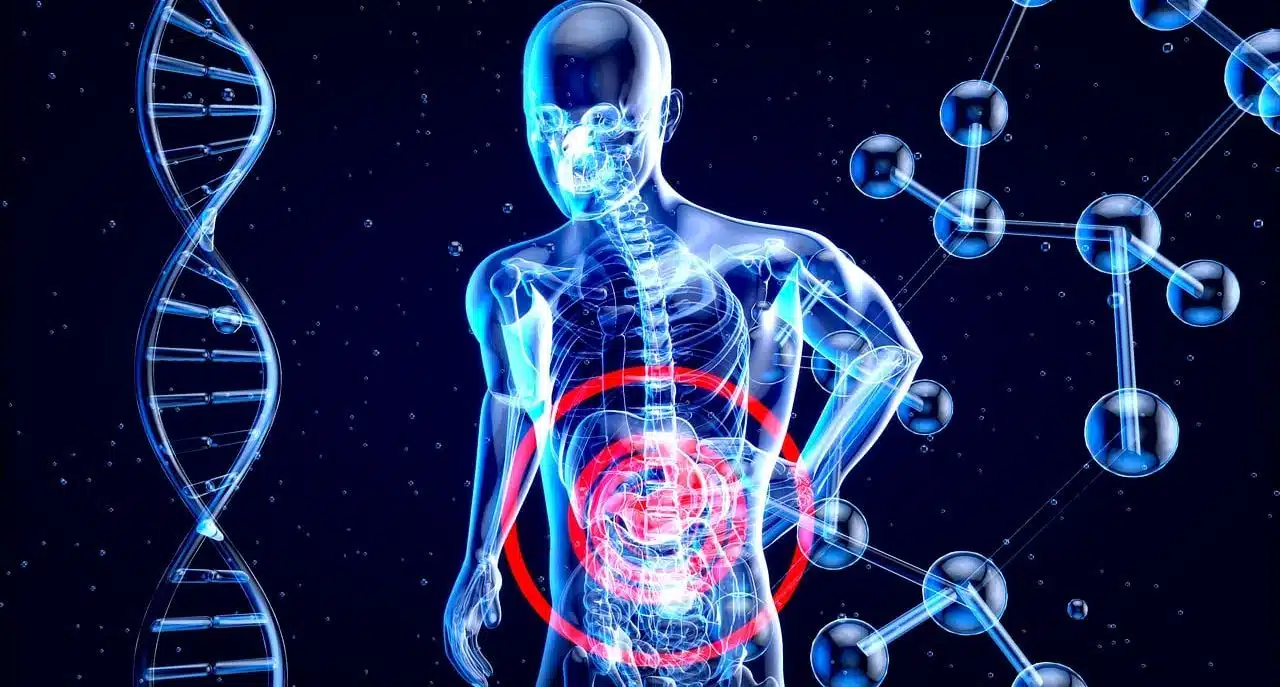
In the digestive system there are intestinal bacteria that make up the intestinal flora.
The digestive system is the group of organs that is involved in the digestion of food . These organs act from the entry of food into the body until its expulsion, taking charge of the necessary treatment to complete the process that includes the absorption of nutrients .
It should be noted that the ordered set of interrelated elements that develop interactions with each other is called a system . Digestive , for its part, is that linked to digestion (the process of digesting: transforming food into substances that the body can assimilate).
Components and functioning of the digestive system
The functioning and components of the human digestive system are described below, since in other species it presents certain differences, which may be slight or considerable.
It can be said that the digestive system is responsible for transporting food ; secrete juices that allow it to be broken down into simpler units; absorb nutrients; and excrete waste .
Food enters through the mouth , passes through the pharynx and esophagus , reaches the stomach , passes to the small intestine and finally reaches the large intestine . On this journey through the digestive system, various gastric juices and substances act.
It all starts in the mouth, when we put a piece of food inside. The teeth - with the help of the tongue - allow the food to be crushed , while the saliva begins the process of forming the bolus, which thanks to peristalsis passes through the pharynx and esophagus until it reaches the stomach, where muscle movements and the Gastric juice contributes to its transformation into chyme . The process continues in the small intestine, with the action of pancreatic juices and bile . Finally, digestion is completed in the large intestine, whose final section is known as the rectum : there is the anus , where the remains of food that cannot be digested are expelled.

Endoscopy and colonoscopy are two procedures that diagnose conditions of the digestive system.
Your layers
From a histological point of view, that is, taking into account the structure, composition and characteristics of its organic tissues, the digestive system is made up of the following four layers , in this case ordered from the center outwards:
- Mucous layer : also known as the inner layer , in it it is possible to find glands that secrete hydrogen chloride and mucus, certain lymphoid nodules and lymphatic vessels. It also has an internal muscular layer (whose scientific name is muscularis mucosae ), which in turn is made up of two others, an internal circular one and an external longitudinal smooth muscle layer.
- Submucosal layer : it is composed of dense irregular fibroelastic connective tissue. It contains the so-called Meissner submucosal plexus , which is part of the enteric nervous system and is responsible for the control of the submucosa, the secretion of the glands and, to a greater extent, motility (the ability to move coordinated and complex) of the mucosa.
- External muscular layer : in the same way as the muscularis mucosae , it is composed of an internal circular layer and an external longitudinal layer of smooth muscle, with the exception of the esophagus, in which we find striated muscle. Its main function is to perform peristaltic movements to move the contents throughout the digestive tract . For its regulation, it relies on Auerbach's myenteric plexus , which is part of the enteric nervous system.
- Adventitious or serous layer : in this case, each name is applied according to the part of the digestive tract that it is responsible for lining. If it is intraperitoneal , it is called serosa, while if it is retroperitoneal it is called adventitia. The former is seen in the part of the digestive tube that enters the abdomen , while the latter has loose tissue and is replaced by the peritoneum at the end of its journey.

Weight loss and obesity can reveal, in some cases, problems in the functioning of the digestive system.
The digestive system and diets
The functioning of the digestive system can vary depending on the diet . There are foods that promote digestion and others that hinder it. Likewise, a person may have an allergy or intolerance, which affects the digestive process and causes various discomforts.
A nutritionist is the professional who must suggest the diet to follow according to the patient's nutritional needs. The gastroenterologist , meanwhile, is the doctor who deals with diseases and disorders of the digestive system.
At a general level it can be said that the ideal is to eat a balanced diet . Thus, through the consumption of different types of foods in appropriate quantities, the body is provided with the necessary nutrients (proteins, carbohydrates, fats, vitamins, minerals, etc.) for its proper functioning. In this framework, the Mediterranean diet is usually recommended, which includes a high consumption of vegetables, fruits, legumes and cereals, using olive oil as the most important fat.
There are individuals who, beyond nutrition, choose how to eat according to their principles and values. In this sense, the vegan diet stands out, which dispenses with foods of animal origin.
Those who suffer from gluten intolerance or celiac disease , on the other hand, should avoid consuming this protein. Thus, a gluten-free diet cannot include wheat, oats, barley or rye. Lactose intolerance , for its part, requires avoiding dairy products.
Diseases and disorders
It is important to consider that the digestive system can suffer from multiple diseases and disorders. A person can suffer from gastroesophageal reflux to a peptic ulcer , including various types of cancer (stomach cancer, colon cancer or rectal cancer, among others).
Irritable bowel syndrome , Crohn's disease , ulcerative colitis , hepatitis , liver cirrhosis , gallstones , gastritis and appendicitis are other conditions that are linked, in different ways, to the digestive system. The subject may also suffer from problems linked to defecation, such as constipation , diarrhea or hemorrhoids .
Intestinal infections , diverticulitis , hiatal hernia and duodenal ulcer are also part of the broad group of illnesses that are related to the digestive system.
